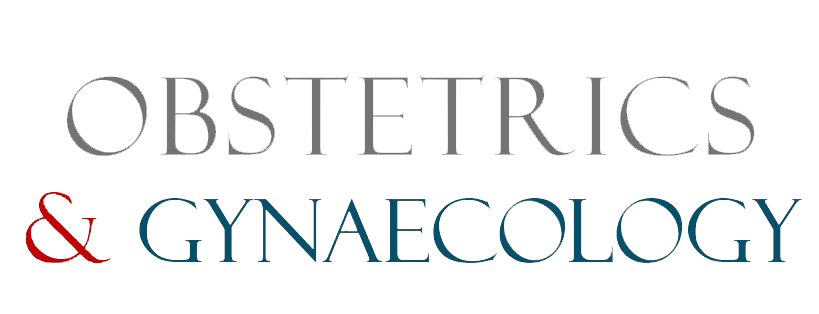
Understanding Menopause: A Comprehensive Guide to Navigating This Life Phase
Overview
Menopause is a natural biological process marking the end of a woman's reproductive years. It is defined as the absence of menstrual periods for 12 consecutive months, signifying the cessation of ovarian function. While menopause is a normal transition, it often comes with various physical and emotional symptoms due to hormonal fluctuations, particularly a significant drop in oestrogen levels.
Age Group
Most women experience menopause between the ages of 45 and 55, with the average age being around 51. However, menopause occurring before 45 is termed early menopause, while onset before 40 is considered premature menopause. Factors such as genetics, lifestyle, smoking, medical treatments (like chemotherapy or hysterectomy), and underlying health conditions can influence the timing.
Indications
Menopause is primarily indicated by the cessation of menstrual periods. However, its diagnosis often involves noting various related symptoms and may require hormonal blood tests, particularly for levels of Follicle Stimulating Hormone (FSH) and estradiol, especially if early or premature menopause is suspected.
Onset Signs and Symptoms
The transition phase into menopause, known as perimenopause, can start several years before the final menstrual period and typically involves irregular menstrual cycles and fluctuations in hormone levels. Common signs and symptoms include:
· Irregular periods
· Hot flushes and night sweats
· Mood swings, irritability, anxiety, or depression
· Sleep disturbances
· Fatigue
· Decreased libido
· Vaginal dryness and discomfort during intercourse
· Changes in urinary frequency or urgency
· Weight gain and slowed metabolism
· Thinning hair and dry skin
· Joint and muscle pain
Management of Menopause
Effective management of menopause aims to alleviate symptoms and prevent potential long-term health issues such as osteoporosis and cardiovascular diseases. Management strategies include lifestyle modifications, dietary adjustments, medical treatments, and supplements.
Lifestyle Management
Adopting certain lifestyle changes can significantly ease menopausal symptoms:
· Exercise: Regular physical activity, including aerobic exercises, strength training, and flexibility exercises, can reduce hot flushes, improve sleep, boost mood, and maintain bone density.
· Stress Reduction: Techniques such as yoga, meditation, and deep breathing exercises can alleviate anxiety and improve emotional stability.
· Sleep Hygiene: Establishing a regular sleep routine and creating a restful environment can enhance sleep quality.
· Avoiding Triggers: Reducing intake of caffeine, alcohol, spicy foods, and hot beverages can decrease hot flushes and sleep disruptions.
· Quit Smoking: Smoking cessation reduces the severity of symptoms and mitigates cardiovascular risks associated with menopause.
Dietary Considerations
Nutrition plays a crucial role during menopause:
· Calcium and Vitamin D: Essential for maintaining bone health and preventing osteoporosis. Incorporate dairy products, fortified foods, leafy greens, and sunlight exposure.
· Phytoestrogens: Foods like soybeans, chickpeas, lentils, and flaxseeds contain phytoestrogens, which may help relieve mild symptoms.
· Balanced Diet: Emphasize fruits, vegetables, whole grains, lean protein, and healthy fats to manage weight gain and support overall health.
· Hydration: Adequate fluid intake helps manage skin dryness and urinary issues.
Medicines and Hormone Therapy
Medications may be prescribed depending on symptom severity and individual health profiles:
· Hormone Replacement Therapy (HRT): The most effective treatment for severe symptoms, particularly hot flushes and vaginal dryness. HRT involves oestrogen or a combination of oestrogen and progesterone to balance hormone levels.
· Vaginal Oestrogen: Applied directly to relieve vaginal dryness, discomfort, and urinary symptoms without systemic hormone exposure.
· Non-Hormonal Medicines: Certain antidepressants (like SSRIs or SNRIs), gabapentin, and clonidine can reduce hot flushes and manage mood disorders.
Supplements
Dietary supplements may also aid symptom management, although evidence varies:
· Black Cohosh: Widely used for hot flushes, though efficacy varies.
· Red Clover: Contains phytoestrogens; some evidence supports symptom relief.
· Evening Primrose Oil: Often recommended for breast tenderness and mood swings, though scientific support is limited.
· Vitamin E: May help with mild hot flushes and skin dryness.
Always consult a healthcare provider before beginning supplements to ensure safety and suitability.
Menopause is a significant transitional period characterised by profound hormonal changes. Recognising symptoms, understanding management options, and making proactive lifestyle adjustments can significantly enhance quality of life. Personalised medical guidance and a supportive approach are essential to navigating this life stage healthily and confidently.
Disclaimer: This article is intended for informational purposes only and should not be used as a substitute for professional medical advice, diagnosis, or treatment. Avoid self-diagnosis and self-medication; always consult your healthcare provider for personalised guidance
Powered by Froala Editor
